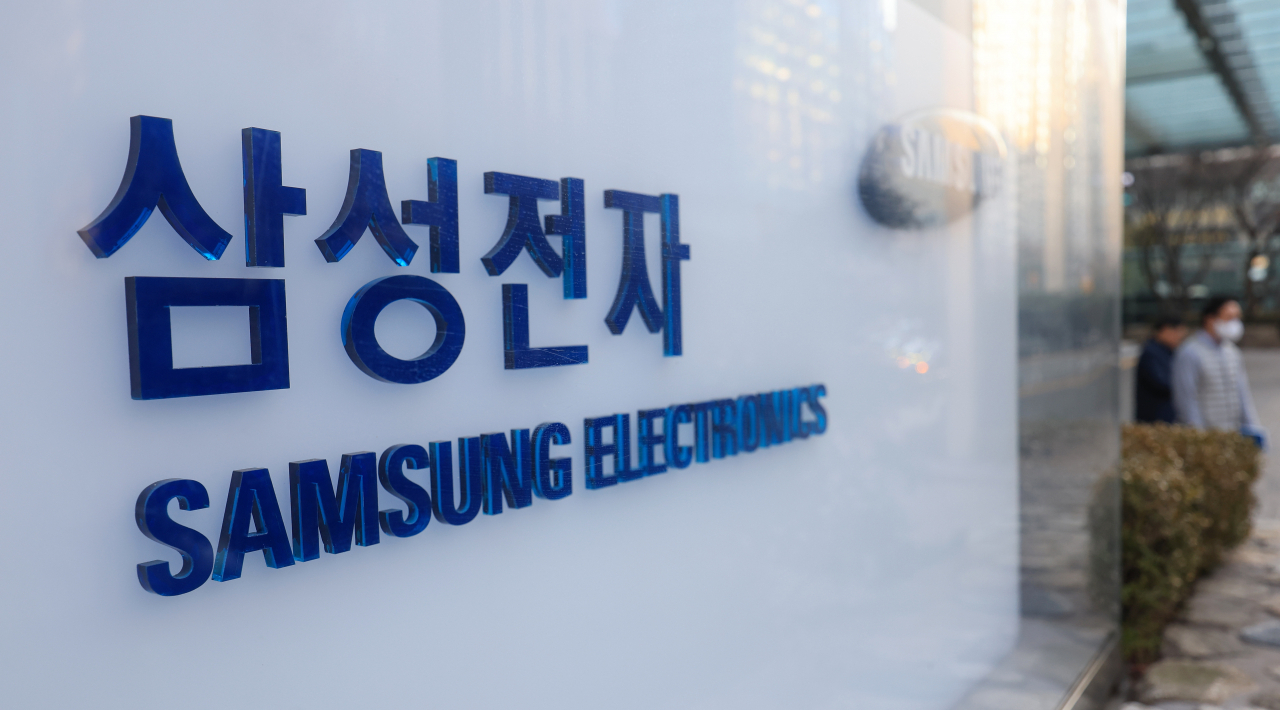Samsung reduces chip deficit in Q4 on DRAM recovery
Top memory chipmaker to stick to production cuts, hopes for turnaround in H1
By Jie Ye-eunPublished : Jan. 31, 2024 - 16:03

Samsung Electronics said on Wednesday it narrowed the size of the semiconductor deficit in the October-December period, as a result of its ongoing chip production cut efforts.
“As we revised down (the chip output), the chip inventories decreased rapidly in the fourth quarter, especially for DRAM memory chips,” Kim Jae-june, executive vice president in charge of memory marketing strategy, said in the fourth-quarter earnings call.
He also said the tech giant will continue cutting its memory manufacturing volume this year to meet the goal of normalizing its inventory levels.
“Since there is a difference in inventory levels for DRAM and NAND chips, we’ll selectively adjust the production levels in the first half of this year. … We expect the inventory levels for DRAM and NAND flash would reach normal levels, respectively, after the first quarter and within the first half,” Kim added.
He said sales of premium products, including HBM3 products, will account for more than half of its memory chip sales within the first half of the year and will expand to 90 percent in the second half.
In April last year, Samsung publicized production cuts for the first time since 1998. The company said it was cutting memory production to a “meaningful level,” in a sharp departure from its previous position that it would not seek an artificial cut in production.
Before Wednesday’s earnings call, the tech giant released reports on its full-year earnings for 2023 and the fourth quarter together, before the Korea Exchange opened.
Samsung said its fourth-quarter operating profit plunged 34.4 percent on-year to 2.82 trillion won ($2.11 billion), mainly attributable to the sluggish chip business and a turnaround in on-demand recovery in the memory chip segment.
The figure was much lower than the consensus of 3.74 trillion won projected by local analysts, as provided by market intelligence firm FnGuide.
Net profit tumbled 73.4 percent on-year to 6.34 trillion won and sales decreased 3.8 percent on-year to 67.77 trillion won for the three months through December.
Samsung said it invested 7.55 trillion won into research and development in the fourth quarter alone, marking the largest quarterly investment by the company.

For the fiscal year of 2023, Samsung logged 6.56 trillion won in operating profit, down 84.9 percent from a year earlier.
It is the first time that the tech giant logged an annual operating profit of less than 10 trillion won since 2008, when it posted 6.03 trillion won amid the global financial crisis.
Its annual net profit tumbled 72.2 percent on-year to 15.48 trillion won, with sales plunging 14.3 percent on-year to 258.93 trillion won.
By segment, Samsung said its chip business posted an operating loss of 2.18 trillion won in the fourth quarter, with 21.7 trillion won in sales.
Its DRAM business, however, turned to a profit over the cited period for the first time after the first quarter’s loss.
The company also saw a rebound in demand for memory chips used in PCs, mobile devices and generative artificial intelligence servers, with decreasing inventories.
The foundry business posted a record number of orders over the three months despite sluggish earnings results. But the company did not provide exact figures.
The mobile business's operating profit and sales came to 2.6 trillion won and 39.5 trillion won, respectively, backed by solid demand for new tablets and wearable products, the company said.
Due to intensified competition, the TV and home appliances business retreated.
In line with a gradual recovery in the IT market in the January-March period this year, Samsung plans to expand sales of its value-added products to improve its balance sheet.
It also looks to boost sales of its latest flagship Galaxy S24 smartphones, its first on-device AI phone launched earlier this month, and become a leader in the AI smartphone market.
After reporting the fourth-quarter earnings shock, Samsung's shares shed 2.15 percent from the previous session's close to end trading at 72,700 won on Wednesday.











![[Kim So-hyun] The quiet taxi driver from Paris](http://res.heraldm.com/phpwas/restmb_idxmake.php?idx=644&simg=/content/image/2024/04/25/20240425050891_0.jpg&u=)







